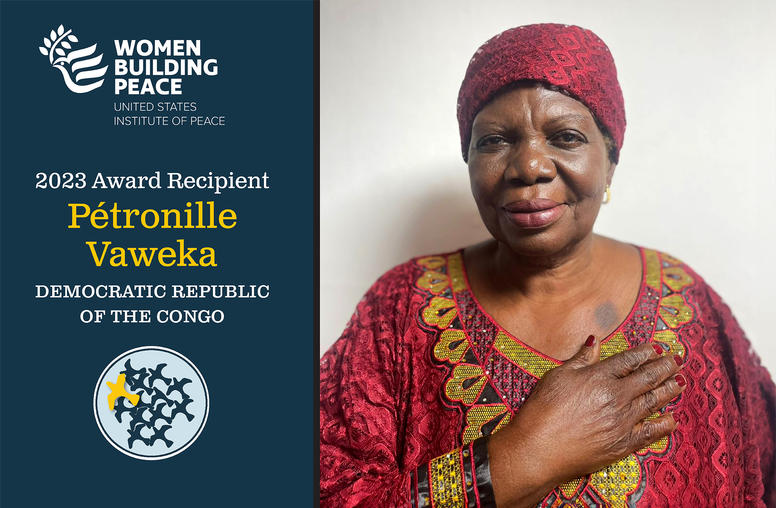The U.S. Mission in Iraq After June 30: Views from State and Defense
Institute Newsbyte examines the challenges ahead for the June 30 transition in Iraq.
WASHINGTON—With little more than a month left until the transfer of sovereignty in Iraq, senior U.S. officials said on Wednesday that the United States would continue to remain heavily engaged in the country. "Our commitment will not lessen after June 30," Ambassador Frank Ricciardone, coordinator for Iraq Transition at the Department of State, told a gathering at the U.S. Institute of Peace. His statements were echoed by General Mick Kicklighter (USA, Ret.), director of the Iraq Transition Team at the Department of Defense, also a featured speaker at the event. [Listen to archived audio from the May 19 event online.]

Ambassador Frank Ricciardone discusses the June 30 transition in Iraq while Institute President Richard Solomon and General Mick Kicklighter listen.
In the most thorough discussion of the transition plans to date, U.S. officials said that while the United States will no longer be an occupying authority in Iraq, it will continue to be a strong and a supportive friend to the Iraqis. "The embassy in Baghdad will be different from any other American embassy," said Ricciardone. According to him, the plans are to have one of the largest U.S. embassies in the world with nearly 700 Iraqi staff and 1,000 American staff supervising the $18.4 billion reconstruction fund appropriated by Congress. The United States intends to retain four primary hubs around the country to facilitate relations with the Iraqis and sustain the reconstruction projects. Some 200 U.S. and international advisors also plan to stay embedded as consultants with various Iraqi ministries as they assume increasing responsibilities.

The two speakers also indicated that the American civilian presence in Iraq is headed toward consolidation, and will have a significant change in mission. "We are changing the Coalition Provisional Authority to a U.S. mission and, although some of the functions overlap, the mission is very different," said Kicklighter.
Nonetheless, the two officials pointed out that they hope the international presence in Iraq will increase in the months ahead. "We will continue to have a multinational force. . .we will have a donors group. . . we will have political coordination that will remain very close, both at the Baghdad level and at the level of capitals. . . but we are also hoping that the United Nations will come back and have a presence and also serve as a focal point for international coordination of all of us and that could extend well beyond the current coalition," said Ricciardone.

U.S. officials also sought to assure the audience at the Institute of Peace that many of the operational details surrounding the transfer of sovereignty are being worked out and that the rest are expected to fall into place over time. "We are setting up for a success," said Ricciardone. He and Kicklighter indicated that their teams have been working on defining various aspects of the transition with their primary focus on the security, mission management and budget, personnel, communications, and contract oversight.
Both officials also sought to indicate that their teams have been cooperating closely and that the transfer of responsibilities from the Pentagon to the State Department was on the right track. "We have been working together. In fact, we are totally integrated, and here in Washington our two teams work together constantly, and we have a joint team on the ground in Baghdad," said Kicklighter. To this end, U.S. officials also expressed confidence that the U.S. Ambassador and the U.S. Commander of Multinational Forces in Iraq will work together, although lines of authority have them reporting separately.
According to the speakers, among the issues that still remain to be defined were the Status of Forces Agreement, continuation of work by contractors in a host as against an occupied country, visa laws, and management of real estate used by the United States in the Green Zone and the rest of Iraq. The two officials indicated that their teams would continue to look into these issues and others that may emerge as the date for transfer of sovereignty approaches.
This Newsbyte was written by Ylber Bajraktari of the Institute's Office of Peace and Stability Operations. The views expressed here are not necessarily those of the Institute, which does not advocate specific policies.

